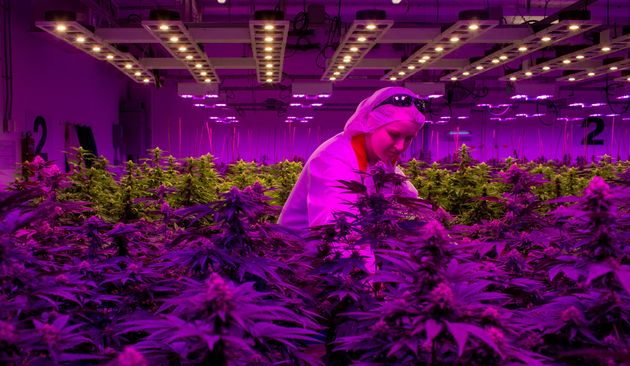You are here
Home 🌿 Marijuana Business News 🌿 Ontario and Quebec's cannabis retail ‘nightmare’ threatens industry, experts fear 🌿Ontario and Quebec's cannabis retail ‘nightmare’ threatens industry, experts fear

A year after legalization, the honeymoon is over for Canada’s cannabis industry. Many producers are reporting disappointing earnings; some have seen crop failures; turnover is high in the executive suite; and so far, prices in the legal industry are far higher than in the black market.
And the illicit market is hanging in there: Despite promises by advocates that legalizing marijuana would take the industry out of the hands of organized crime, Statistics Canada data shows the black market shrank by just 21 per cent over the past year.
Investors’ faith has been shaken. The North American Marijuana Stock Index — which for now is dominated by Canadian producers — has lost half its value in the past six months.
North American Marijuana Index of stock prices

North American Marijuana Index
“It was a bubble and the bubble’s been burst,” said investment analyst Chris Damas, author of the BCMI Cannabis Report.
A number of problems have emerged, not least being a shortage of legal supply, which analysts say was caused by producers having to ramp up production sharply right after legalization. That shortage has driven up prices relative to the black market, and resulted in some retailers, such as Quebec’s SQDC, having to close their doors for parts of the week.
“The retail rollout in Canada has been an unmitigated disaster,” industry analyst Greg McLeish of Mackie Research said in comments to Marijuana Business Daily.
“That is exacerbating a problem, where (companies) who do want to get their product out are having trouble, because the brick and mortar is not built out yet.”
In a recent client note, McLeish looked at the 50 largest publicly-traded cannabis companies in Canada and found that 21 of them have less than six months of cash on hand.
Though McLeish didn’t name the companies, he noted most of them are among the smaller ones, with less than $200 million in market value.
But in Damas’ view, the retail problem isn’t countrywide — he sees “a tale of two solitudes,” with Western Canada’s network of private retailers rolling out quickly and efficiently, while Ontario and Quebec’s more heavily government-controlled networks failed to rise to the occasion.
Quebec needs around 800 cannabis stores to fill market demand, Damas estimates. The website of SQDC, the monopoly retailer in Quebec, lists 21 locations. By comparison, there are nearly 300 private stores in Alberta and more than 80 in British Columbia.
But Damas reserved his harshest criticism for Ontario, where the government has instituted a lottery for issuing cannabis retail licences, one that has so far issued far fewer permits than analysts estimate the province needs.
Even though Ontario has three-and-a-half times as many people as Alberta, its legal cannabis sales are only slightly higher in dollar terms, Damas noted. (At last count, sales in Ontario were $29 million a month, versus $23 million in Alberta.)
“It’s a big disappointment when 40 per cent of the population is not participating in the cannabis revolution,” he said, referring to Ontario’s share of Canada’s population.
Why do they think someone who can afford the lottery entry fee would be the best person to retail a controlled substance? Do they have a lottery to determine who will be a brain surgeon? It seems idiotic.Cannabis industry analyst Chris Damas
Damas described the lottery-permitting system as a “nightmare.”
The province has “single-handedly created a black market for licences,” he said in an interview with HuffPost Canada. “The winners of the lottery are actively selling their licences on the black market.”
Ontario’s rules limit cannabis producers to owning less than 10 per cent of a retail operation, meaning many licenced producers who were counting on retail revenue have been left on the sidelines, Damas noted.
“Why do they think someone who can afford the lottery entry fee would be the best person to retail a controlled substance? Do they have a lottery to determine who will be a brain surgeon? It seems idiotic.”
But Damas does see some good news on the horizon for the industry in Canada. Producers have managed to ramp up volumes, and — like some other analysts — he says the legal cannabis shortage should turn into an oversupply by next year, pushing prices down and making legal pot more competitive with the black market.
In the meantime, the industry could see a shake-out as producers adjust to the new reality. McLeish expects some producers will cut back on staff, as Green Growth Brands recently did.
“We’re going to continue to see that in the industry until the financial results show meaningful growth.”
420 Intel is Your Source for Marijuana News
420 Intel Canada is your leading news source for the Canadian cannabis industry. Get the latest updates on Canadian cannabis stocks and developments on how Canada continues to be a major player in the worldwide recreational and medical cannabis industry.
420 Intel Canada is the Canadian Industry news outlet that will keep you updated on how these Canadian developments in recreational and medical marijuana will impact the country and the world. Our commitment is to bring you the most important cannabis news stories from across Canada every day of the week.
Marijuana industry news is a constant endeavor with new developments each day. For marijuana news across the True North, 420 Intel Canada promises to bring you quality, Canadian, cannabis industry news.
You can get 420 Intel news delivered directly to your inbox by signing up for our daily marijuana news, ensuring you’re always kept up to date on the ever-changing cannabis industry. To stay even better informed about marijuana legalization news follow us on Twitter, Facebook and LinkedIn.




